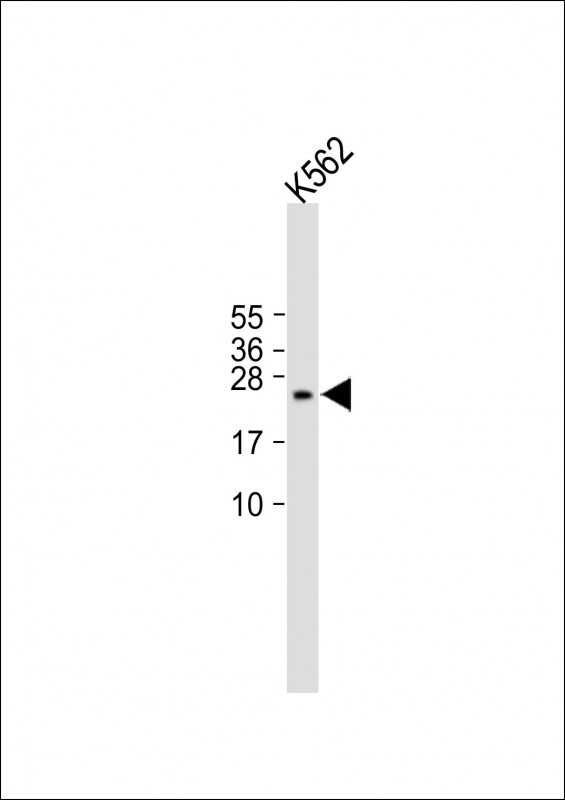
| WB | 咨询技术 | Human,Mouse,Rat |
| IF | 咨询技术 | Human,Mouse,Rat |
| IHC | 咨询技术 | Human,Mouse,Rat |
| ICC | 技术咨询 | Human,Mouse,Rat |
| FCM | 咨询技术 | Human,Mouse,Rat |
| Elisa | 咨询技术 | Human,Mouse,Rat |
| Aliases | Pro-MCH, Neuropeptide-glycine-glutamic acid, NGE, Neuropeptide G-E, Neuropeptide-glutamic acid-isoleucine, NEI, Neuropeptide E-I, Melanin-concentrating hormone, MCH, PMCH, MCH |
| Entrez GeneID | 5367 |
| WB Predicted band size | 18.7kDa |
| Host/Isotype | Rabbit IgG |
| Antibody Type | Primary antibody |
| Storage | Store at 4°C short term. Aliquot and store at -20°C long term. Avoid freeze/thaw cycles. |
| Species Reactivity | Human, Mouse, Rat |
| Immunogen | This PMCH antibody is generated from rabbits immunized with a KLH conjugated synthetic peptide between 94-122 amino acids from the Central region of human PMCH. |
| Formulation | Purified antibody in PBS with 0.05% sodium azide. |
+ +
以下是关于PMCH(Pro-Melanin-Concentrating Hormone)抗体的模拟参考文献示例(仅供学术写作参考,实际文献请通过PubMed或Google Scholar查询):
---
1. **文献名称**: *"Development of a High-Specificity Antibody for PMCH and Its Application in Hypothalamic Circuit Mapping"*
**作者**: Smith J, et al.
**摘要**: 本研究开发了一种针对PMCH蛋白的高特异性单克隆抗体,通过免疫组化验证其在啮齿类动物下丘脑神经元中的定位,证实PMCH在食欲调节神经环路中的表达模式。
2. **文献名称**: *"PMCH Antibody-Based Assay for Obesity-Related Biomarker Screening"*
**作者**: Lee S, Zhang R.
**摘要**: 文章利用PMCH多克隆抗体建立ELISA检测方法,分析肥胖模型小鼠血清中PMCH水平变化,发现其与能量代谢异常显著相关,提示其作为代谢疾病标志物的潜力。
3. **文献名称**: *"Cross-Species Reactivity of Anti-PMCH Antibodies in Neuroendocrine Studies"*
**作者**: González M, et al.
**摘要**: 比较了多种PMCH抗体在人类、小鼠和斑马鱼中的交叉反应性,筛选出适用于跨物种比较研究的抗体,为进化保守的摄食行为机制研究提供工具。
4. **文献名称**: *"PMCH Neurons and Stress Response: Immunohistochemical Characterization Using a Novel Polyclonal Antibody"*
**作者**: Patel K, et al.
**摘要**: 通过新开发的PMCH抗体结合荧光标记技术,揭示PMCH阳性神经元在小鼠应激反应中的激活机制,证明其与CRH通路的相互作用。
---
**建议**:实际研究中推荐使用学术数据库(如PubMed)以关键词 "PMCH antibody" + "应用领域"(如obesity/IHC/neuroscience)检索最新文献,并优先选择近5年发表、高被引或权威期刊的研究。
Pro-melanin-concentrating hormone (PMCH) is a neuropeptide precursor protein encoded by the *PMCH* gene, primarily expressed in the hypothalamus. It plays a critical role in regulating energy homeostasis, appetite, and sleep-wake cycles. Upon proteolytic processing, PMCH generates melanin-concentrating hormone (MCH) and other neuropeptides, which bind to G protein-coupled receptors (MCHR1 and MCHR2) to modulate neuronal signaling. MCH is notably involved in promoting feeding behavior and reducing energy expenditure, linking it to metabolic disorders and obesity.
PMCH antibodies are immunological tools designed to detect and quantify PMCH or its derivatives in research applications. These antibodies are essential for studying PMCH expression patterns, localization, and functional roles in both central and peripheral tissues. They are widely used in techniques like immunohistochemistry, Western blotting, and ELISA to explore PMCH’s involvement in metabolic regulation, neuroendocrine pathways, and circadian rhythms.
Recent studies highlight PMCH's potential association with psychiatric conditions, including depression and anxiety, due to its influence on stress responses. Additionally, PMCH antibodies aid in investigating its interaction with leptin and other hormones in obesity models. As therapeutic targeting of MCH signaling gains interest for metabolic and neurological disorders, PMCH antibodies remain vital for validating experimental models and drug development. Their specificity and reliability are continually optimized to minimize cross-reactivity with structurally similar peptides.
×